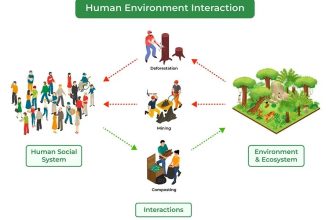Reconciliation after divorce is a deeply personal and complex topic, often leaving individuals seeking clarity and guidance. What does the Bible say about reconciliation after divorce? The scriptures offer wisdom and insight on forgiveness, grace, and the possibility of restoration. Understanding these biblical principles can provide hope and direction for those navigating the aftermath of divorce. Let’s delve into the teachings of the Bible to uncover valuable perspectives on reconciliation in the face of separation and brokenness.
What Does the Bible Say About Reconciliation After Divorce
Divorce is a sensitive topic that affects many families and individuals. When considering reconciliation after divorce, it is essential to turn to the wisdom and guidance provided in the Bible. The Bible offers valuable insights and teachings on forgiveness, reconciliation, and the importance of love and compassion in relationships. Let’s explore what the Bible says about reconciliation after divorce.
The Sanctity of Marriage
The Bible emphasizes the sanctity of marriage as a sacred covenant between a husband and a wife. In the book of Malachi 2:16, it is written, “For I hate divorce!” says the Lord, the God of Israel. “To divorce your wife is to overwhelm her with cruelty,” says the Lord of Heaven’s Armies. “So guard your heart; do not be unfaithful to your wife.” This verse highlights God’s displeasure with divorce and showcases the importance of honoring the marriage vows.
God’s Plan for Marriage
According to the Bible, marriage is designed to be a lifelong commitment based on love, respect, and mutual support. In Matthew 19:6, Jesus reaffirms the sacredness of marriage by stating, “So they are no longer two, but one flesh. Therefore what God has joined together, let no one separate.” This verse underscores the divine intention for marriages to be enduring and unified.
Forgiveness and Reconciliation
While divorce is acknowledged in the Bible under certain circumstances, such as adultery or abandonment, the focus is on forgiveness and reconciliation whenever possible. In Colossians 3:13, it is written, “Bear with each other and forgive one another if any of you has a grievance against someone. Forgive as the Lord forgave you.” This verse encourages individuals to practice forgiveness and seek reconciliation in relationships.
Healing Broken Relationships
Reconciliation after divorce involves a process of healing and restoration. The Bible teaches the importance of humility, empathy, and communication in repairing broken relationships. In 1 Peter 3:8-9, it is stated, “Finally, all of you, be like-minded, be sympathetic, love one another, be compassionate and humble. Do not repay evil with evil or insult with insult. On the contrary, repay evil with blessing, because to this you were called so that you may inherit a blessing.” These verses highlight the transformative power of love and compassion in rebuilding relationships.
Seeking Guidance and Counseling
When considering reconciliation after divorce, it is beneficial to seek guidance and counseling from pastors, therapists, or support groups. The Bible emphasizes the importance of seeking wise counsel and guidance in making decisions. In Proverbs 11:14, it is written, “For lack of guidance a nation falls, but victory is won through many advisers.” By seeking support and advice from trusted individuals, individuals can navigate the complexities of reconciliation with wisdom and discernment.
Prayer and Reflection
Prayer plays a significant role in the process of reconciliation after divorce. By seeking God’s guidance through prayer and reflection, individuals can find clarity, strength, and peace. In Philippians 4:6-7, it is stated, “Do not be anxious about anything, but in every situation, by prayer and petition, with thanksgiving, present your requests to God. And the peace of God, which transcends all understanding, will guard your hearts and your minds in Christ Jesus.” Through prayer, individuals can find solace and guidance during the challenging journey of reconciliation.
Reconciliation after divorce is a complex and emotional process that requires patience, understanding, and faith. The Bible offers valuable teachings on forgiveness, reconciliation, and the sanctity of marriage. By turning to the wisdom and guidance provided in the scriptures, individuals can navigate the challenges of divorce with grace and compassion. Remember, reconciliation is a journey that requires effort from all parties involved, but with God’s love and support, healing and restoration are possible.
Divorce and Remarriage According to the Bible
Frequently Asked Questions
What guidance does the Bible provide regarding reconciliation after divorce?
The Bible acknowledges that divorce can be a result of human sin and brokenness, but it also emphasizes the importance of reconciliation and forgiveness. It encourages individuals to seek reconciliation whenever possible, emphasizing forgiveness, grace, and mercy in relationships.
Is reconciliation after divorce always recommended by the Bible?
While the Bible values reconciliation, it also recognizes the complexities of human relationships. It does not mandate reconciliation in all situations, especially in cases of abuse, neglect, or ongoing harm. Individuals are encouraged to seek wise counsel and consider their unique circumstances when contemplating reconciliation after divorce.
How does the Bible view the process of reconciliation after divorce?
The Bible teaches that reconciliation involves humility, repentance, forgiveness, and genuine efforts to make amends. It emphasizes the importance of grace, compassion, and love in rebuilding relationships. The process of reconciliation after divorce is seen as an opportunity for healing and restoration, guided by faith and wisdom.
Final Thoughts
The Bible emphasizes reconciliation after divorce, encouraging forgiveness and restoration of relationships. It emphasizes the importance of seeking resolution, extending grace, and rebuilding trust. While divorce is allowed in certain circumstances, the focus remains on healing and reconciliation. Following biblical principles can guide individuals towards peace and reconciliation after divorce.






